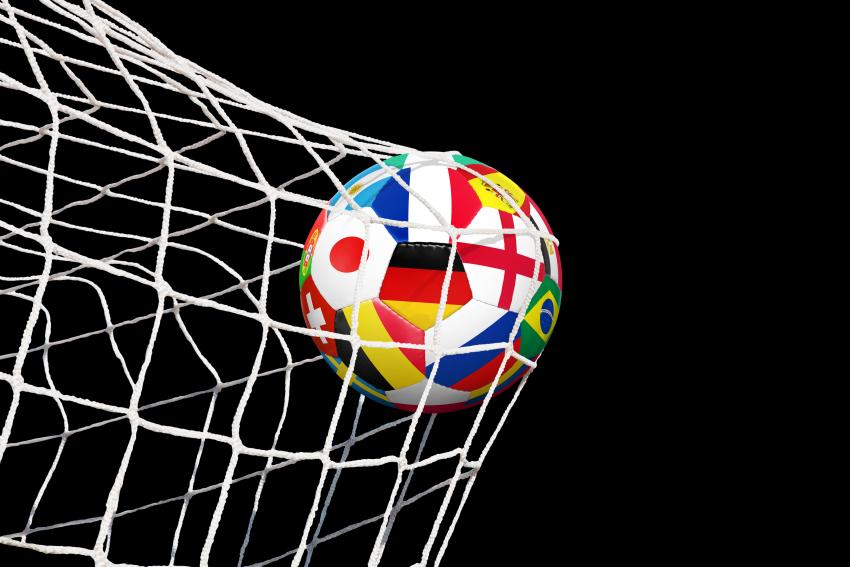UEFA Euro 2024: the challenges of translating official documents and press releases

The organisation of UEFA Euro 2024 is not limited to logistical and sporting aspects. Considerable work is also devoted to the preparation of official documents, press releases and manuals in order to ensure precise multilingual communication. This translation process ensures that information is accessible to a diverse international audience. Let's take a look at the main challenges this entails.
Índice de contenidos
Index of contents
Index du contenu
Inhaltsverzeichnis
Indice dei contenuti
1. The importance of mulitilingual translation
In an environment filled with spectators, journalists and athletes from all over Europe and beyond, it is essential that documents are available in multiple languages to:
- Ensure consistent communication: All participants must have access to the same information to ensure smooth organisation and avoid misunderstandings.
- Promote inclusivity: Providing documents in various languages makes everyone feel included and respected, regardless of the language they speak.
- Respect regulations: The Union of European Football Associations (UEFA), as well as local organisers, must adhere to the language regulations of the host and participating countries.
2. The process of translating official documents
Translating official Euro 2024 documents is a complex process involving several key stages:
- Selection of translators: Specialised translators are selected based on their linguistic competence and knowledge of sports jargon. It is also important that they are native speakers of the target language. Translation agencies are often brought in for projects of this scale, thanks to their ability to efficiently manage large workloads.
- Preparation of original content: The original documents must be carefully prepared to ensure clarity and consistency before translation. This includes event regulations, organisational manuals and safety guidelines.
- Translation and review: Once translated by professional translators, the documents are reviewed by bilingual editors to ensure accuracy, consistency, and ultimately, a high-quality translation. These language services often involve numerous exchanges between translators and technical experts to clarify ambiguities.
- Final validation: Translations are validated by linguistic experts and representatives of the participating countries to ensure compliance with local cultural and linguistic norms.
3. The specific challenges of press releases
Press releases pose unique challenges in terms of translation:
- Speed: They must be translated quickly to meet the real-time needs of the media. This requires close coordination between communication teams and translators.
- Accuracy: The content of press releases must be precise and unambiguous to avoid misunderstandings and misinformation.
- Tone and style: The tone and style of press releases must adapt to cultural differences while maintaining the coherency of the UEFA brand.
4. Use of translation technologies
There are numerous widely used technologies to streamline the translation process:
- Computer-assisted translation tools (CAT tools): These tools help translators manage large amounts of text while maintaining terminological consistency, largely thanks to translation memories.
- Translation Management Systems (TMS): TMS allow tracking and control of translation projects, ensuring that all stages and deadlines are respected.
- Peer review applications: Platforms like SDL Trados Studio or memoQ allow translators and reviewers to work together in real-time, improving the efficiency and quality of translation services.
5. Concrete examples and practical cases
- UEFA.com: The official UEFA website offers information in different languages, including match announcements, results and interviews with the players. Translators must closely collaborate with editors to ensure real-time multilingual coverage.
- Press releases from FOX Sports or Teledeporte: These networks have teams of translators to prepare press releases in English, Spanish and other languages in order to ensure smooth communication with international media.
Conclusion
Preparing official documents and press releases for Euro 2024 is a complex and rigorous process that requires a perfect coordination between organisers, translators and professional translation agencies. Thanks to fast and accurate translations, these teams contribute to making Euro 2024 an inclusive and accessible event for everyone, both participants and spectators, regardless of their native language.
Other articles you may be interested in:

Emeline holds a Master's degree in Applied Foreign Languages, specialising in International Management and International Trade Techniques. She completed her end-of-studies internship at AbroadLink Translations and now works there as a sales and marketing assistant



Add new comment